Africa Travel Tips & Advice
Help Me Plan- Home
- >
- African Travel
- >
- Travel Tips & Advice
Medical Considerations
Important: African Sky does not provide medical advice. We offer some recommendations of what to discuss with your physician.

Malaria
We strongly recommend consulting your doctor and obtaining anti-malarial medication if you visit a malaria area. With medication, malaria is easily preventable but is a severe disease if contracted. In addition to drugs, we recommend purchasing a few cans of aerosol mosquito repellent once in South Africa. We recommend Peaceful Sleep or Tabard, both available in supermarkets.

Yellow Fever
A yellow fever vaccination certificate is required if you are traveling from or have transited through a country with a risk of yellow fever transmission. Please consult the WHO or CDC website and your physician for the most up-to-date and personalized requirements based on your itinerary.

Allergies
We recommend consulting your physician regarding precautions you can take in the event of an allergic reaction to dust and pollen. Remember to communicate any food allergies before your arrival so that we can inform the relevant lodges or hotels.

Prescription Medication
If you plan to arrive with prescription medication, we suggest bringing the written prescription and the original boxes or containers in which you received the drug. South Africa is less austere regarding controlled medicines. Nevertheless, it is prudent to arrive prepared.

Medical Facilities
South Africa has first-world medical facilities and doctors who are, in some cases, regarded as among the leaders in their field globally. African Sky does not, however, offer medical or travel insurance. Arrange this before you travel in the unlikely event of a medical emergency.
FAQ
Client Detail
Client detail consists of your full names and contact detail. Please double-check all names to ensure they are 100% accurate; this is necessary for flights.African Sky Contact Detail
The document contains the general contact detail of African Sky, the mobile phone numbers of your sales agent, and the guide/s that will accompany you.Accommodation
The hotels, lodges, or guest houses where you will overnight. Room types, as well as rooming configuration, are included.Flights
Detail of the flights included in your itinerary, including flight numbers, time and duration and the reference code necessary for check in.Attractions & Activities
Sights you will be visiting and activities you will enjoy during your tour, safari, or honeymoon in Africa.Meals
Included Meals.Detailed Itinerary
A detailed day-to-day itinerary description.Detailed Inclusions & Exclusions
Specifics of what your tour, safari, honeymoon, or vacation package includes and excludes.Road Transport
There are no luggage restrictions while traveling by road in an African Sky vehicle. The luggage must fit the vehicle; hence multiple suitcases are not advisable. Both soft and hard cases are acceptable. You may also bring along a backpack or similar as hand luggage [for example, a dedicated camera bag].Domestic & Regional Commercial Flights
You are limited to one item of check-in luggage that should not exceed a weight of 20 kg [44 lbs.]. Do not divide your check-in luggage into two or more pieces. You'll be charged a penalty fee for the second [and third] item, even if your combined luggage weight is within the specified limit. Hard, soft, and wheeled cases are permitted. You are limited to one carry-on [hand luggage] item that should not exceed 7 kg [15 lbs.].Scheduled Charter Flights
You'll travel by charter if you fly directly to a safari lodge airfield rather than via a commercial airport or if you are traveling from one remote location to another. You are strictly limited to a combined luggage weight limit [both check-in and carry-on] of 20 kg [44 lbs.]. Any luggage that exceeds the weight limit will not be loaded. Luggage should be a flexible soft bag conforming to a size of roughly 25 x 65 x 30 cm or 10 x 26 x 12 inches, or as close as possible; they are not unreasonable. Flexible, soft-sided luggage is easier to store in the underside compartment. No hard-body wheeled or pull-handle cases are allowed as luggage compartment space is limited.Non-Scheduled Charter Flights
Non-scheduled charter flights are available. We can book these flights on request. African Sky will ensure a smooth changeover from one form of transport to another. Leave the finer detail to us. We suggest bringing only essential items on your tour or safari. If you're unsure if you'll need it, ask before packing it in.General Luggage Advice
Ensure your luggage is locked before checking in, and don't leave any valuables inside your cases. Such items are easily detected when the luggage is scanned and may give an official cause to conduct an "inspection." Some travelers shrink-wrap their luggage, but we feel this isn't necessary on local or regional flights. Finally, African Sky will gladly take care of surplus luggage while you're at a safari lodge or remote location, schedule permitting. We've never lost an item yet, but so that you know, we cannot accept responsibility if your luggage is damaged or lost while in our care.Your Names
Please verify your names on your reservation document. Your names should be 100% accurate, as they appear in your passport. Airlines require complete and exact names to appear on flight tickets. Names on tickets must match the names in your passport and correspond with the relevant fields: first, middle, or given names, and last names. It is critically important. If we make a single error, you might not be permitted to board the flight. In that case, you'll have no choice but to purchase a new ticket. If you have a double-barrelled surname, or if your last name is hyphenated, this should be clearly indicated. If we incorrectly assume that part of your last name is your middle name or vice versa, we'll book your tickets incorrectly, and they will have to be reissued at your expense.Double Check Passport and Visas
Please double-check that your passport and visa/s are in order before traveling to Southern Africa.Information Desk
An information desk is available in the foyer of the arrival hall. Friendly attendants will gladly assist or answer any questions you might have.Porters
On entering the public area of Johannesburg airport, you might find yourself confronted by a porter. He might/she might press his services on you, more so if you're an unaccompanied female or female without a male companion. Regardless of what is said, be aware that you are not obligated to avail of porter services or advice. The porter might recommend a taxi or other airport-based service. Do not avail of such recommended services. Porters, taxi drivers, and other unofficial service providers are in collusion. In return for kickbacks, they conspire to overcharge tourists. Be assertive but not aggressive when responding. Answer clearly with a resounding "No, thank you." Do not engage further, even if they insist on continuing the conversation. Do not disclose personal information or the nature of your visit. Doing so is a green light to go ahead and recommend a "friend" who can help for a "very good price." A male porter will make an aggressive effort to intimidate an unaccompanied female traveler, going as far as wresting control of her luggage trolley. If that happens, refuse to continue and state that you will approach the South African police desk, located in the foyer of the arrival hall.At Safari Lodges
When Staying at a safari lodge, usually a personal or luxury establishment, your game drives will take place on an open-air 4x4 safari vehicle. These game drives are conducted by resident rangers, not by an African Sky guide.On private tours or safaris
On the other hand, if you've booked a private overland safari or tour guided by an African Sky guide, your game drives will take place in a closed tour vehicle and not an open-air safari vehicle. We do not use open-air safari vehicles unless by special request, at an additional cost. Children of all ages are welcome. Closed vehicles offer air-conditioning in summer [a necessity], heating in winter, protection from wind and rain, and protection from dust on unpaved roads, ideal if you have expensive photography equipment. Game drives may last all day if you wish.Transfers in South Africa
Under normal circumstances, an air-conditioned sedan, minibus, or similar vehicle will transfer guests between airports and lodges. If, however, you're being transferred from one safari lodge to another in an area like the Kruger National Park or Sabi Sand Game Reserve [i.e., if you don't leave the reserve], then in all likelihood, an open safari vehicle will be used.Transfers between Zambia/Zimbabwe and Botswana
Part of the journey will be in air-conditioned vehicles. In Botswana, you may be transferred between the border post and lodge on an open safari vehicle on public roads for a distance of approximately 15 km [about 9 miles] because, once in the Chobe National Park, a four-wheel drive vehicle is required to get to/from the lodge.Purchasing a Local Sim Card
If you plan to spend an extended period in South Africa, purchasing a local SIM card might be a good idea. You will have to prove you're a bona fide tourist in the form of your reservation document or a copy of your passport. These measures are a security precaution to prevent unsavory characters from obtaining untraceable numbers.US Residents: A note on international SIM cards
Verizon, US Cellular, and the old Sprint network [now owned by T-Mobile] use CDMA technology. Most of the world, Africa included, uses GSM technology. GSM networks in the US are AT&T and T-Mobile. If you're an AT&T or T-Mobile subscriber and have an unlocked device [i.e., it isn't restricted to one particular network], it's as easy as swapping the SIM card. If you have a CDMA-compatible device, it won't connect to a GSM network. If you're unsure, please clarify with your carrier.On Tour in South Africa or Namibia
We include a generous allowance for all meals in your package [except while you're at a fully inclusive lodge]. For example, if your schedule indicates dinner is included in Cape Town and the Garden Route, you are not limited to the hotel restaurant. Our experienced guide will know which restaurants in town are currently the best and will gladly discuss meal arrangements with you. Your guide will transport you to and from the restaurant and join you for dinner if you wish.In National Parks
Meals are enjoyed in Camp Restaurants, accompanied by your guide or on our own if you wish to dine alone.At Private Lodges
Chefs at Private Lodges prepare a very high standard breakfast, lunch, and dinner. In addition to these meals, there are early and mid-morning snacks and late afternoon tea served with cakes and other delicacies.Who to book with:
There are a significant number of companies that offer travel services in Southern Africa. In the author's opinion, choosing a company based in Southern Africa will give you access to more detailed local knowledge and experience, which could significantly enhance the enjoyment of your vacation.When to book:
As a general rule of thumb, you must book roughly a year in advance. Doing this will ensure that most/if not all, of your primary accommodation choices, are still available.Weather To Expect & Clothing
We provide some insight regarding the expected weather in each season and appropriate clothing.
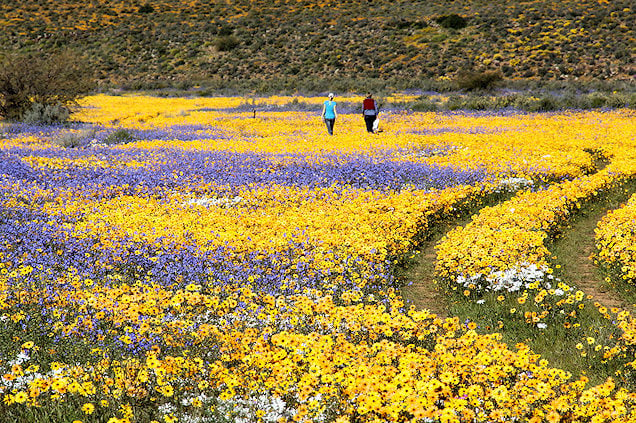
Spring
September to November
Spring's arrival brings a magical transformation of the country and landscapes. The Cape floral regions, such as Namaqualand, are covered with a kaleidoscope of hundreds of thousands of colorful wildflowers. During spring, whales can be seen breaching the waters of the Western Cape in towns such as Hermanus and Arniston. Temperatures are up, and mild to hot conditions can be expected with the occasional cold snap as winter makes its final stand before heading off to the Northern Hemisphere.
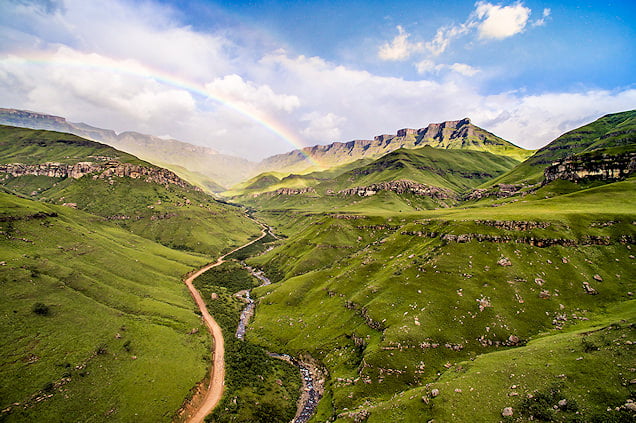
Summer
December to February
Summer in Southern Africa begins in December and continues through to February. It will be hot to very hot. Temperatures range from 10 to 40 degrees Celsius [50 – 104°F]. December, January, and February are the mid-summer period when temperatures and rainfall are the highest. The majority of summer rainfall comes in the form of afternoon thundershowers. It will be humid in the low-lying eastern parts of the subcontinent in summer, notably the Kruger National Park, KwaZulu-Natal, Eswatini, and Mozambique. Lodgings in those regions have air-conditioned rooms. We recommend shorts, t-shirts, comfortable sandals, a cap or hat, sunglasses, and sunscreen if you're sensitive to the sun.
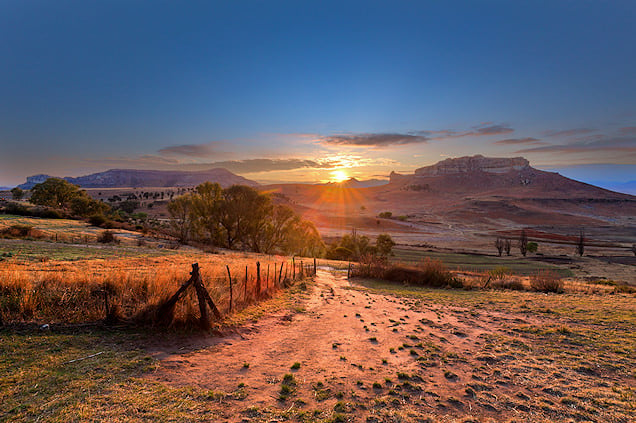
Autumn
March to May
Autumn is considered to have some of the best weather conditions throughout Southern Africa. Temperatures are not as extreme as winter or summer, with mild and warm rainfall in all regions. The Cape region, most notably Cape Town, offers a very moderate and pleasant climate during this season. Many landscapes are transformed into rich, golden brown hues, providing excellent photographic opportunities.
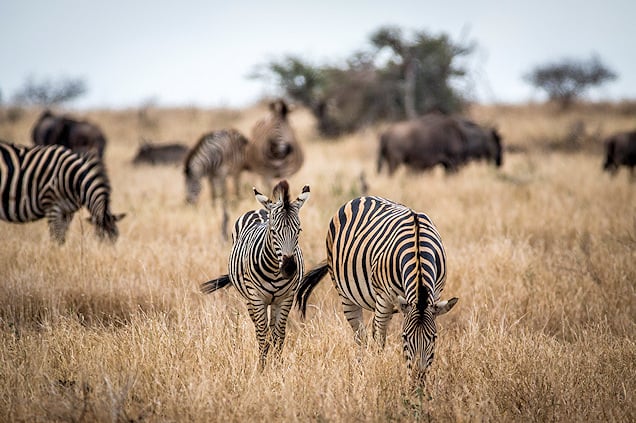
Winter
June to August
Winter is from June to August and is typically the dry season. Temperatures range from 0 to 25 Celsius [32 to 77°F]. It will be pleasant in the low-lying eastern parts of the subcontinent where the Kruger National Park is located, with little or no humidity. It's almost guaranteed not to rain. The skies will be bright, blue, and clear. The Southern and western parts of South Africa [Cape Town and the Garden Route], as well as the highveld [Johannesburg and Pretoria], will be sunny but cold. In the eastern parts of South Africa and Botswana, Victoria Falls, and Namibia, it will be cold at night and early morning but warm to hot during the day. Be aware that indoor heating isn't common in Southern Africa. It might be colder indoors than expected. In winter, we recommend you 'dress to undress'.
Best Times to Travel in Southern Africa
Each season has its unique charm. The dry season offers the finest game viewing, but the wet season sees the birth of the young and a lush and green environment. The winter months are best if you travel to the northern part of Southern Africa, including the Kruger National Park, Botswana, Namibia, and Zambia. In the Southern part, you will experience the region at its finest between September and April (Spring, Summer, and Autumn). These two months are the finest to visit Southern Africa if you travel to the northern and Southern countries and regions.
Find Tour & Safari Packages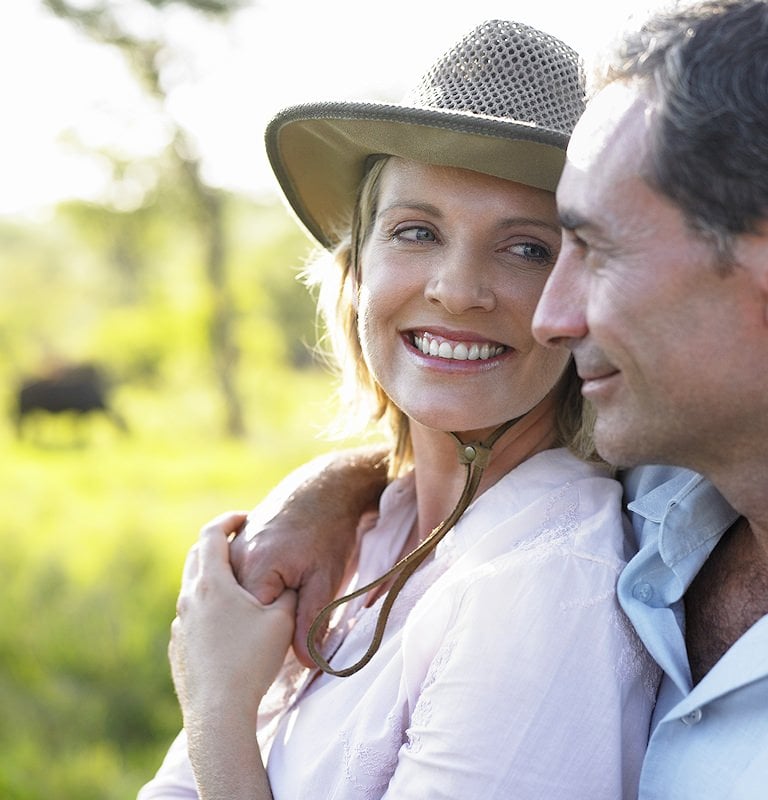
Andrew's Photography Tips
In the context of this guide, photographers are grouped into three broad categories: beginner or casual, intermediate, and expert or professional. Whatever your level of photographic experience, if you intend to travel with a camera, it's always a good idea to understand how it works. We also suggest traveling with your camera's handbook, as, at some point, you'll want to take advantage of a feature you know your camera has but cannot remember how to activate.
African Sky will gladly arrange rental photography gear for the duration of your safari. We'll deliver the equipment to you on arrival and return it after completing your safari or tour. Ask for further details and prices.

Casual Photographers
If you own a camera, whether an 'old' film camera, a point-and-shoot, or a DSLR and are not concerned with capturing top-notch images but rather wish to record your travels for the sake of reminiscing, any camera will do the job. Ensure you bring enough memory/film and batteries, and don't forget your charger. Ensure you know the local voltage supply [see 'electricity' below].
Intermediate Photographers
If you're one who's moved up from the point-and-shoot category and purchased a DSLR - you've opened yourself up to many new and exciting possibilities. You'll have access to the latest technology continually filtering down to the consumer and prosumer range. In particular, your camera will be compatible with your manufacturer's top-end lenses [better glass always produces better images], features like continuous shooting, and better control over settings like ISO, aperture, and shutter speed. Understanding those three aspects and how they work together will equip you with the knowledge required to produce better-quality images. As your skills improve, you'll use the "full auto" modes less than the manual ones, allowing better control over one or more of these aspects.
Expert or Professional Photographers
Most folks in this category have particular reasons why they travel. For example, they may book a stay at a specific safari lodge where big cat sightings are usually excellent and bring equipment capable of capturing superb magazine-quality images. Most safari lodges are willing to provide - at an extra cost – a dedicated game drive vehicle with a ranger and tracker for full-day photographic excursions.
In Africa's wildlife reserves, over decades, the wildlife has been habituated to the presence of vehicles. Lenses with a focal length of up to 300mm are great for most scenarios. Remember, though, that wild animal don't pose for photographs. Patience is a critical ingredient. A knowledgeable guide who understands animal behavior is advantageous. Understanding your camera inside and out always pays dividends. Most reserves are wooded to a greater or lesser extent, and you should remember that no one can guarantee sightings. Weather, seasons, food availability, and population density are some of the factors that influence wildlife movements.
I recommend a minimum focal length of 200mm. A 300mm lens is ideal and not too cumbersome. Canon manufactures a versatile 100-400mm lens that does a great job. Both prime [fixed focal length] and zoom lenses are ideal; the higher the quality, the better. Professional series lenses can produce professional-quality images. Most safari lodges [all in South Africa] provide electricity for charging batteries. I don't carry a tripod or monopod as neither is practical for use in a vehicle. You will need a decent bean bag while photographing from a car. When I fly, I usually empty my bean bag contents into a container I leave home, then fold the bag and carry it in my luggage. When I arrive at my destination, I buy a couple of rice packets to fill the bag again. I also suggest a hand-held blower and good cleaning equipment as it can be dusty, and you'll want to keep your kit clean.
In my opinion, a decent, powerful flash for wildlife photography is essential equipment. I use my 580 EXII with a radio (not infrared) trigger to eliminate nasty eye shine, especially with the big cats, and for photographing in shadow or on cloudy days. For the 70-200mm, I also carry a polarizing filter for those bright sunlight shots to cut out reflection and darken the sky a little.
Finally, I suggest making a list of the serial numbers of all the equipment you bring. Almost certainly, no one will pay your camera bag any attention, but if customs ask you to complete an import form requiring the serial numbers of your equipment, you are prepared. While you're at it, add your iPad or laptop to the list.
Visas & Point of Entry Fees
You are responsible for arranging the necessary visas for the countries you’re visiting. African Sky does not assist with visa applications. Do not leave your visa arrangements to the last minute.
Visas fall into two broad categories: pre-arranged visas and visas issued on arrival. You may enter South Africa without a visa if you hold a US, Canadian, British, European, Australian, or New Zealand passport. No pre-arrangements are necessary. Most other passport holders may also enter South Africa without a pre-arranged visa. US passport holders do not need to pre-arrange visas to enter Zambia, Zimbabwe, Botswana, and Namibia. Every Southern African country – South Africa, Namibia, Botswana, Zimbabwe, Zambia, Eswatini, Lesotho, and Mozambique – is an independent state and has different visa requirements. Do not assume that entry into South Africa also entitles you to enter one or more countries on the same visa. Your passport must be valid for at least six months after your intended departure date and should have at least two full blank pages available where visas if required, will be affixed. Note: Botswana also charges a Tourism Levy of USD 30 per person, payable in cash at the port of entry. Pre-payment isn’t possible.
Zimbabwe & Zambia: If traveling to either of these countries, your visa should be purchased at the port of entry [if a pre-arranged visa isn’t required]. The visa is payable in hard cash in US Dollar currency only. No other currency is accepted, nor are ATM, credit, debit, or bank cards. Credit card point-of-sale facilities are not available. Regular or Traveler's Checks can not be used to purchase Visas. The Zimbabwe and Zambia visa cost ranges from USD 35 to USD 100 per person. We recommend keeping at least USD 150 on hand; visa costs sometimes change without notice. Ensure you travel with the latest available versions of the banknotes. Older versions, as well as notes with ink marks or writing on them, or notes that are excessively folded or crumpled, are not accepted. Bring an adequate supply of small denomination notes [1’s, 5s, 10s, and 20s] as the change in US Dollar currency is always a problem.
There are three Zimbabwe/Zambia visa options: single-entry, double-entry, and the multiple-entry UniVisa. A single-entry visa permits the holder to enter the country once. Another visa must be purchased if the holder departs the country and returns. A visa to enter the other country might also be required. An example is if the visa holder crosses from Zimbabwe to Zambia, or vice versa, to view Victoria Falls from the other side. A double-entry visa permits the holder to enter the country of purchase twice: once on arrival and once on return. A visa to enter the other country might also be required.
We strongly recommend purchasing a multiple-entry UniVisa. The current per-person cost is USD 50. UniVisa holders can enter Zimbabwe and Zambia multiple times without additional visa costs beyond the initial purchase. The UniVisa is valid for 30 days and also allows for day trips into Botswana (Chobe), provided you return to Zimbabwe or Zambia the same day.
- South Africa www.dha.gov.za
- Botswana www.gov.bw
- Namibia www.mha.gov.na
- Zambia www.zambiaimmigration.gov.zm
- Zimbabwe www.moha.gov.zw
- Mozambique www.portaldogoverno.gov.mz
Currency and Credit Cards
Which currencies are accepted in the countries that I'm visiting on safari?
= Definitely.
= Select locations, or possibly not at all (curio markets or lodges only; change in the same currency not available or limited).
The above table is a guideline. The author provides detail in the paragraphs below.
Visa and MasterCard are accepted in South Africa, Namibia, and the most important centers in Botswana. Almost all safari lodges in South Africa, and many in Botswana and Namibia, have credit card facilities. About 50% of establishments in tourist areas will accept your credit card in Zimbabwe and Zambia. In Zimbabwe, Zambia, and Botswana, many merchants will add a surcharge of 3 – 5% of the value of the transaction to cover bank charges. About 80% of establishments in South Africa only will also accept American Express. Other cards are generally not accepted. Cards not accepted include debit cards, bank cards, and any other private bank cards not affiliated with Visa or MasterCard. Traveler's checks are accepted in South Africa at selected institutions only, but we recommend avoiding them if possible.
In addition to your credit card, we recommend you bring along some cash for spending money, tips (see our separate tipping guideline), and so forth. It is easy to convert US Dollars, Pounds, and Euros to local currency at Johannesburg or Cape Town airport. Upon entering the arrival's hall, look out for one of the exchange bureaus. You'll be required to present your passport to convert your cash to local currency. Exchange your money in South Africa or the country you're traveling to rather than before leaving home, as local exchange rates are more favorable.
Once you've left Southern Africa and if you've arrived home with ZAR, and to a lesser extent ND and BWP, you should be able to find an exchange bureau willing to convert it to your local currency. If you arrive home or leave the country with Zambian cash, consider it a souvenir as no exchange bureau will accept it. Zimbabwe introduced a new gold-backed currency, the ZiG, in April 2024, but the US Dollar remains the widely accepted tourist currency and is highly recommended.
In South Africa, Botswana and Namibia, you will not be able to use foreign currency. In Namibia, ND and ZAR are accepted and have the same value. The same arrangement (dual currency system) applies in Eswatini and Lesotho. However, the Namibian, Eswatini, and Lesotho currencies are not accepted in South Africa, so be mindful of leaving those countries with their money.
In Zimbabwe (Victoria Falls), you'll be able to use USD, ZAR, Pounds, and, to a lesser extent, Euros at the informal (curio) markets. Zambia (Livingstone) has now limited the use of foreign currency, although some informal markets might still accept it. Most Zimbabwe lodges will take the above currencies for payment, and tips will also be happily received in this way. Change in a foreign currency will always be a problem, so bring enough small denomination notes (20s, 10s, 5s, and 1s). Where possible, don't accept change in local currency when paying in foreign currency.
Electricity Supply

Establishments in South Africa, Namibia, Botswana, Zimbabwe and Eswatini will make use of a three-pronged wall socket with an on/off switch very similar to that in use in India (i.e. the old British standard). The wall socket is compatible with plugs which have three rounded (not square) pins in a triangle formation
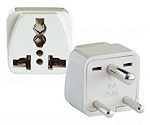
European type adapter plugs are readily available and come in both formats (two or three pins). US/Canada adapter plugs are also available, and most luggage stores at major airports will sell them, and stores in large malls and shopping centers. Kindly note that the US/Canada adapter plug is not a converter and will not decrease the electricity supply from 220V to 110V. Australian and New Zealand adapter plugs are also available.
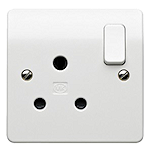
In Zambia, the wall sockets will be exactly as currently in use in the UK with a 220V supply. Adapter plugs that fit the configuration may be used.

A word of caution: if you plan to purchase an adapter plug while in South Africa, do not do so on the flight over, but after you've arrived. Our guides will be happy to assist as far as possible. Some airlines sell adapters that are not locally compatible.
Detailed Tipping Guideline
Although tipping is widely accepted in the tourism industry in Southern Africa, it is by no means compulsory, nor is there a definite expectation of receiving a tip 'regardless of the standard of service.' The rule-of-thumb is simple: give a gratuity if you feel the person providing the service went out of their way to provide you with a service that you think exceeded the minimum you expect for your money.
In all cases, please remember that the figures indicated below are recommendations and a guideline. You're welcome to tip a higher or lower amount at your discretion.
Acceptable Levels of Service
Tour & Safari Guides: African Sky employs several excellent tour and safari guides, all of whom have been in our employ for a considerable amount of time. We don't enforce a minimum service standard and certainly don't monitor their every move. Our guides have the option to make personal recommendations or suggestions to personalize and improve the quality of your experience. The ultimate determining factor will always be the valuable feedback we receive from our guests. If a guide is not performing to standard, it will reflect as such in the feedback forms we receive from our guests, and we won't employ that guide any longer. This simple but stringent policy is evident: all our guides, without question, will go beyond expectation. We, therefore, recommend gratuities by your level of enjoyment.
Rangers & Trackers at private Safari Lodges: are employed by the lodge in question and are therefore not responsible to African Sky. Privately owned lodges set exceptionally high standards at which their staff should perform. No one can guarantee 'big 5' sightings; although they are a regular occurrence, very few safaris depart without sighting the full compliment. Again, the amount you tip is at your discretion and based on your level of enjoyment.
Who do I tip? Who shouldn’t I tip? How much?
In Southern Africa, it would not be out of place to tip the following people: Tour/safari guides, rangers/trackers; waiters in public restaurants; waiters at lodge dining rooms if the service is excellent; porters at hotels; car guards (people who 'watch' your car while you're away from it), but only if there is a genuine need for their service.
In Southern Africa, we do not typically tip the following people: transfer drivers, petrol (gas) pump attendants; check-out staff in supermarkets; waiters in restaurants/lodges who provide a minimum standard of service; taxi drivers; car guards if in a place where it is evident that your vehicle will not be tampered with without going unnoticed; reception staff at hotels/lodges; over-the-counter staff in any regular business establishment; housekeeping staff.
Guidelines
Note that the below figures are recommendations only. The actual amount is at your discretion.
ZAR 10 for a party of 3 or more.
*Waiters – typically 10% of the total bill (make sure a gratuity has not been included in the total cost before doing so).
You’re welcome to tip in South African Rand, United States Dollars, Pounds, or Euros.
Recommendations on What to Pack
Packing for a vacation on the other side of the world can be quite a headache. Here is a basic list of what may be considered essential for your travels to Southern Africa.
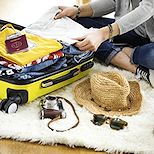
Luggage
If you are taking charter flights on light planes, it is essential to have a soft bag (duffel). Luggage should not exceed the maximum weight of 20kg (just under 45lbs). If not, the standard international airline restrictions are adequate for overland travel.

Light Clothing
Light, comfortable clothing is essential. You would not wish to be constrained by uncomfortable outfits throughout your adventures and activities. A vacation is, after all, about relaxation, and South Africans are generally a casual bunch regarding daily attire.
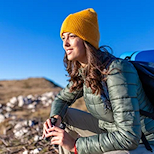
Warm Jacket / Sweater
You should pack at least one warm jacket or sweater. When embarking on an early morning or late afternoon safari, temperatures either start quite chilly or drop after the sun sets. Winter in the Southern region requires a good jacket, as it can be cold and wet.

Formal Wear
A dinner jacket will be required if you are traveling on the Blue Train, Rovos Rail, or staying in one of the top luxury hotels. It is the only time you will find the necessity to dress up unless you are so inclined.

Hat / Cap
A hat or cap is always a good idea, mainly if you are fair-skinned. Even in the winter, the African sun may have a harsher effect than you realize, and a nasty sunburn will spoil any trip. A hat or cap will also aid viewing during peak sunset and sunrise hours.

Binoculars
Binoculars are an essential safari accessory. Though our guides or the lodge rangers typically have a pair handy, this may not always be the case. Pack a pair of binoculars if you are enthusiastic about game viewing and want to maximize the experience to its full potential.
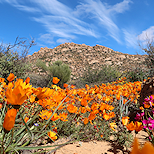
Allergy Medication
If you are prone to allergies, be sure to pack allergy medication. Springtime sees a proliferation of flowers, and winters in the north of South Africa can be pretty dusty. If you have food allergies, we must know about this before arrival.

Walking Shoes
Comfortable walking shoes are a must. Though most of our itineraries do not include strenuous activities or too much walking, if you are interested in partaking in a bush walk or scenic hikes, your shoes could make or break your experience.
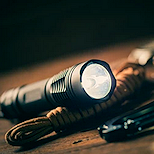
Flashlight
A small flashlight can be handy. During a safari, guests are guided to their accommodations at night; many people feel safer and more confident with their own flashlights. Regardless of where you are staying, a flashlight is a handy tool.
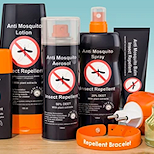
Insect Repellent
Insect repellent is indispensable, particularly when visiting an area where malaria is prevalent. Aerosol-type repellents are typically the easiest to apply and 'Peaceful Sleep' and 'Tabard' are widely available throughout South Africa.









